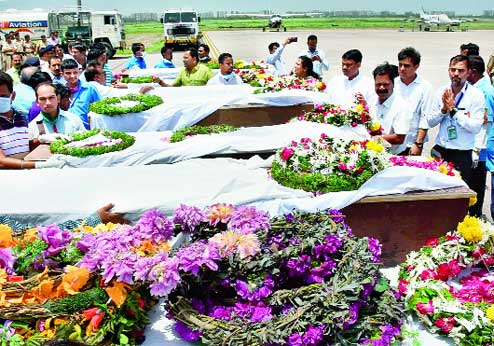New Delhi, July 12: The Union health ministry today released a "strategic plan" that outlines milestones to eliminate malaria from across the country by 2027, the second time in 50 years that India has set a goal that health experts caution is still challenging.
The strategic plan, which seeks to intensify surveillance and improve diagnostic and treatment services, has set an intermediate target to raise the number of districts that have already achieved "zero local transmission" of malaria from 75 in 2017 to 571 by 2022.
Health officials say India has already made significant progress towards reducing the burden of malaria over the past 15 years. Malaria cases declined from about an estimated 2 million in 2001 to 1.13 million in 2015. The health ministry says malaria deaths have dropped from 1,005 in 2001 to less than 300 in 2015.
"This new (strategic) plan represents a total paradigm shift," R.K. Vats, additional secretary in the health ministry, said. The malaria-control activities will be tailored to the district level to provide localised strategies, depending on the malaria load in each district.
Over 90 per cent of malaria cases over the past year have been registered from just 109 districts in select states, including Arunachal Pradesh, Chhattisgarh, Jharkhand, Odisha, Meghalaya and Mizoram.
But people in about 200 districts in Bengal, Andhra Pradesh, Chhattisgarh, Gujarat, Jharkhand, Karnataka, Madhya Pradesh, Odisha and all the seven northeastern states still remain at high risk for malaria, according to a health ministry document released last year.
India had launched a malaria eradication programme in 1958 that had been initially viewed as a success with malaria incidence plummeting to only 100,000 cases in 1965. But the infection resurged, escalating to 6.4 million cases by 1976.
"Things are very different now, we have new tools, new management strategies," said Neena Valecha, director of the National Institute for Malaria Research, New Delhi. "But eliminating malaria is still not going to be an easy task, it is still challenging," she told The Telegraph.

The tailored strategies involve expanding quick access to rapid diagnostic kits that can distinguish between malaria caused by Plasmodium vivax and Plasmodium falciparum and appropriate treatment to patients who are diagnosed with malaria across the country.
"The falciparum parasite is what causes almost all malaria deaths," a senior official in the country's malaria control programme office said. "The rapid diagnostic test can give a result in 10 minutes. It can quickly guide treatment decisions."
In the 109 districts with the highest burdens of malaria, the plan also envisages "accelerated and intensified" actions to control mosquito populations through insecticides and prevent mosquito bites through the distribution of long-lasting insecticide impregnated bednets.
Malaria experts say ensuring diagnostic kits and appropriate treatment, after monitoring patients for drug-resistant versions of malaria, will remain a challenge, particularly in remote areas of some states where the malaria burden is high. "A lot will depend on the priority that states give to this effort," an official said.
A health official said the activities envisaged under the strategic plan were expected to cost Rs 10,653 crore between 2017 and 2022. The next phase of the elimination plan will be drawn up five years from now and will aim at achieving zero local transmission of malaria across the country by 2027, he said.
Public health experts have in the past suggested that India may be undercounting its malaria deaths.
A study in 2010 by Indian, British and Canadian health researchers had estimated that India might have 2 lakh deaths from malaria each year, compared with about 1,000 counted by the health ministry each year. Health experts have attributed the difference primarily to poor disease surveillance mechanisms.
But a senior health official told The Telegraph today that surveillance had significantly improved over the past decade. "We're now analysing over 120 million slides (for malaria) each year," the official said.










